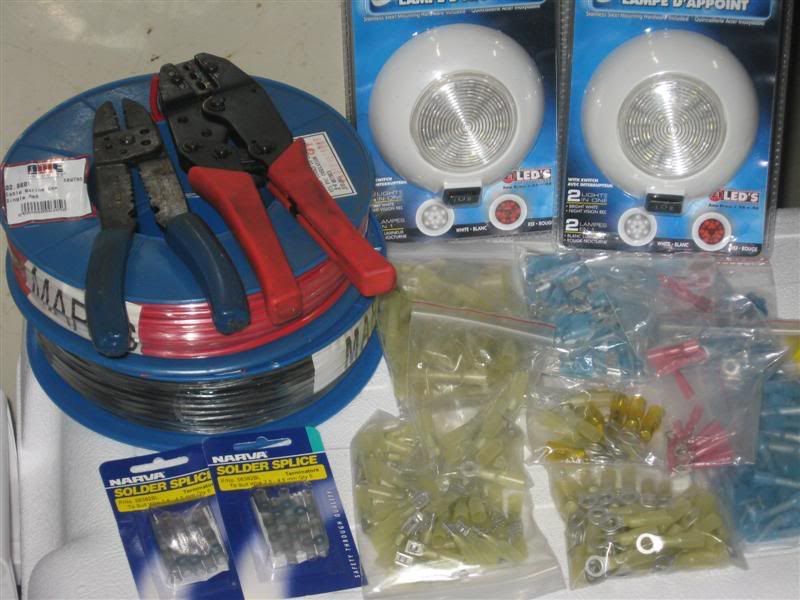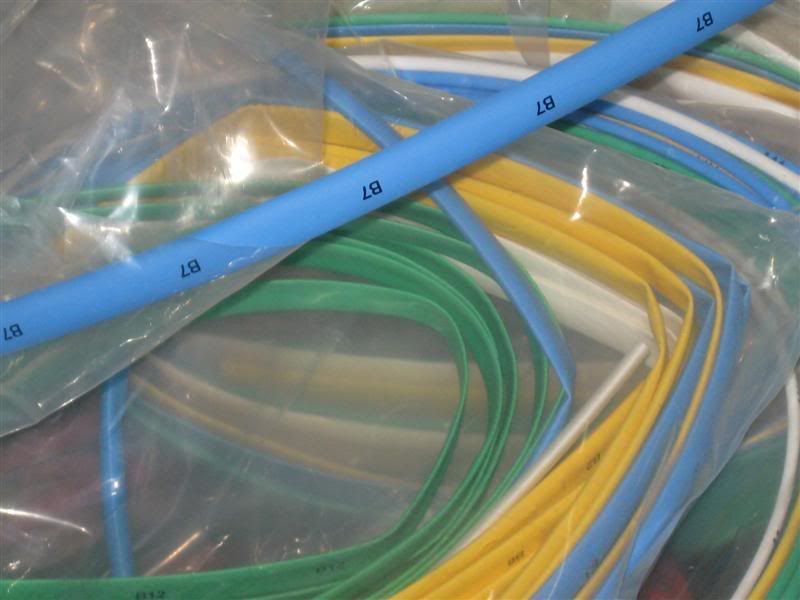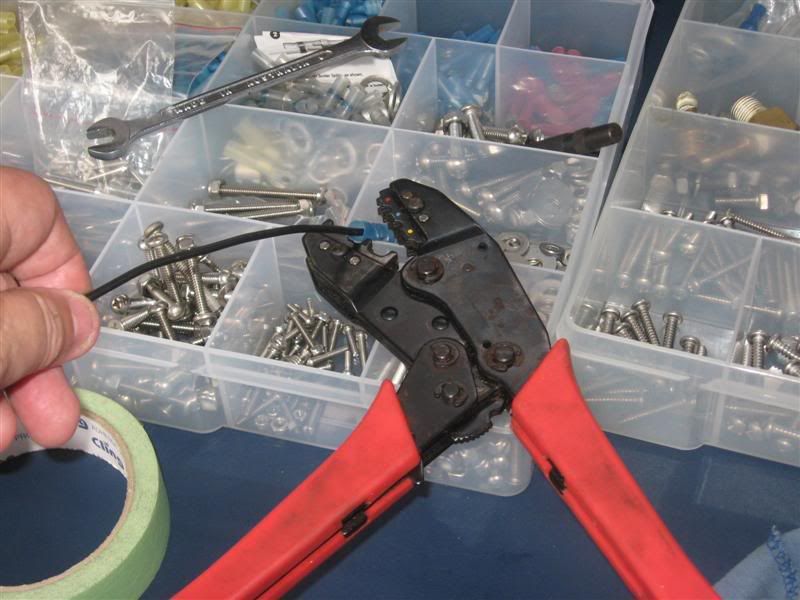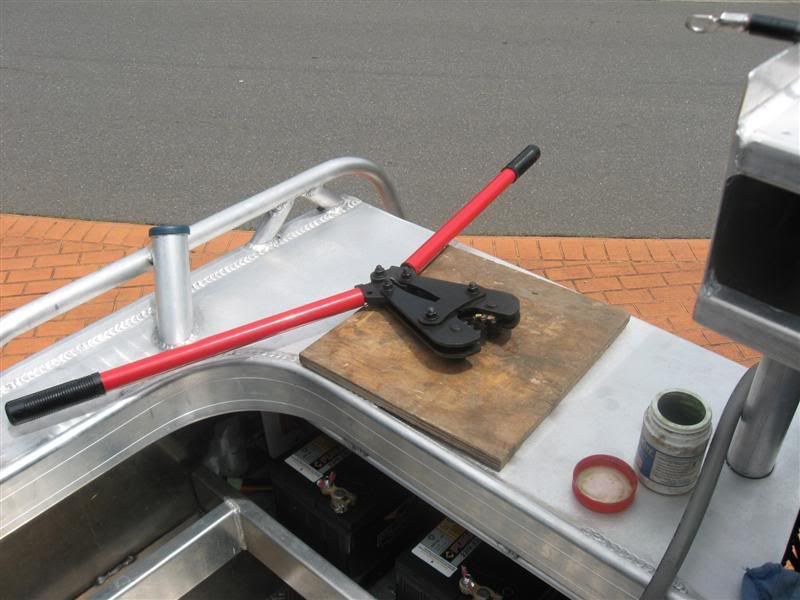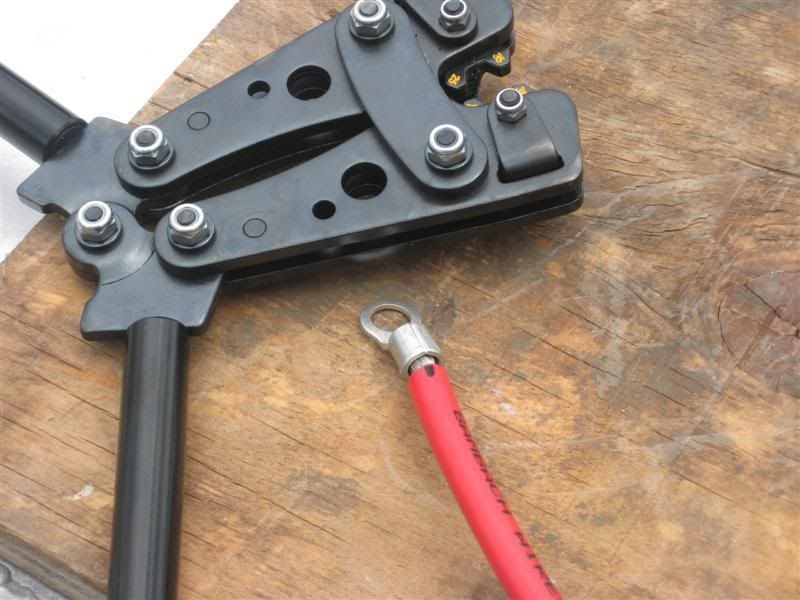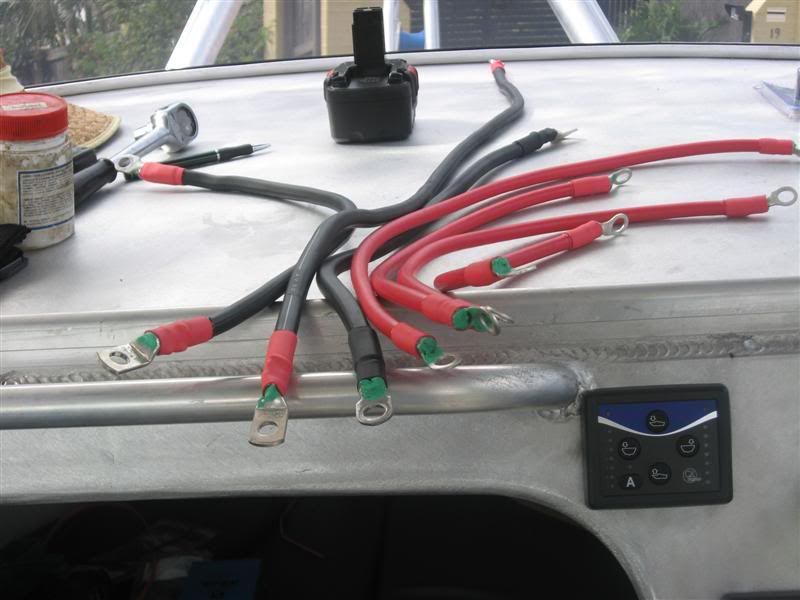Everybody is talking about the correct way to crimp & what tools to use but there are no photos. Here are a few.

The basics. Tinned wire, heat shrink glue-lined crimp terminals (in bulk packs) & crimping tools. Crimpers are ratchet (the best) & pressure only. The terminals are coded red, blue & yellow for use on small, medium & large diameter wire.
I use printed heat shrink in different colours to identify each wire.
Ratchet crimper ready to go. Each die is coloured to correspond with the colour of the terminal.
This crimper is designed for battery terminal lugs & has a rotating die to cater for different size lugs. It produces a hexagonal crimp which is very strong & has great conductivity.
Smaller version showing the rotating die system & a selection of completed cable with adhesive lined heatshrink tubing.The lugs I used were not totally closed so I sealed them with some green liquid tape. The heatshrink tube colour identifies the polarity. Red is (+), black is (-).







 Reply With Quote
Reply With Quote
